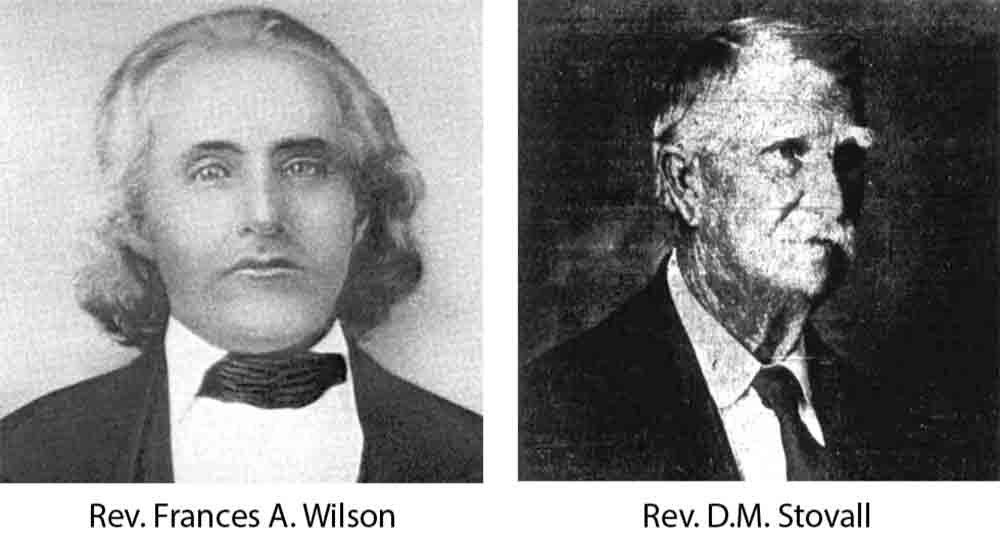Local church celebrating 175 years in Livingston

(Editor’s note: First Methodist Church of Livingston is celebrating its 175th anniversary and this milestone will culminate with a celebration on Oct. 22 that will include a combined worship service at 10:30 a.m., a luncheon at noon and a concert that evening. Local Historian Gary Davis has compiled the history of the church and snippets from that history will be featured on these pages in a multi-part series leading up to the celebration.)
By Gary Davis
In the year 2023, the Methodists of Livingston will be celebrating 175 years of service in the community. Methodism in Texas originated from the frontier days of circuit riding – itinerant preachers, who traveled on horseback from one village to the next. This system of sending out these preachers to minister to the widely scattered settlers proved to be a very effective way of spreading Methodism across Texas.
The first protestant preacher to cross into Texas was undoubtedly William Stevenson (1768-1857). From Tennessee, the itinerant Stevenson entered the frontier of Texas at Jonesboro (often spelled Jonesborough) in the year 1817. This was the same village where Sam Houston crossed the Red River and entered Texas years later in 1832. Stevenson also has the distinction of being the first protestant in East Texas as he traveled down Trammel’s Trace and preached in Nacogdoches to a mixed assemblage of both Mexican and Anglo citizens. At this time the introduction of protestant beliefs was contrary to Mexican law.
An early written reference to Methodism in Polk County is contained in Homer S. Thrall’s 1872 History of Methodism in Texas. It refers to the year 1843, when circuit rider, Reverend Frances A. Wilson (1790-1867), held protracted camp meetings throughout East Texas. Brother Frank, as he was called, spent a lifetime traveling on horseback, swimming across creeks and sleeping on the ground in the rain, all the while being under the threat of an Indian attack. He faithfully delivered the gospel to the socially isolated and spiritually starved people who traveled from miles around to hear him preach. One such meeting was held on Wolf Creek in Polk County (in 1870 this area was split from Polk and became San Jacinto County). By his estimates, he traveled a total of 150,000 miles, delivered 7,000 sermons and made over 4,000 conversions to Methodism. Wilson is listed on the Livingston Methodist Church Honor Roll of Pastors as having served here from 1853-1855.
At the General Conference of 1844, held in New York City, a schism occurred within the Methodist Episcopal Church over the slavery issue. In a special called conference held on May 1, 1945, in Louisville, Kentucky, a new and separate denomination called the Methodist Episcopal Church, South, or simply the MEC, S was formed. The Texas delegates voted to join this new denomination. It should be noted that black families had been included in Methodist congregations in Texas since 1822 and the East Texas conference appointed, in 1846, Reverend Frank Wilson as “missionary to the people of color within the bounds of the Conference.”
In 1845, the Republic of Texas was divided into two conferences, with the Trinity River as the boundary between the West Texas or simply the Texas Conference and the East Texas conference. Frank Wilson was the Presiding Elder (PE) of the San Augustine District. One of the circuit riding preachers in the East Texas conference was Reverend David McGowen Stovall.
Born in Tennessee in 1828, D.M. Stovall was ordained in the Methodist church at age 18. He recalled in a 1907 letter to the Houston Post that his family crossed the Sabine into Texas on February 1, 1836. Stovall was one of seven brothers that were circuit riding preachers that delivered the Methodist faith in Southeast Texas. In a genuine gift of an article in the Polk County Enterprise of July 6, 1911, Stovall advised that he traveled as an itinerant preacher in the East Texas conference for 36 years and that Livingston and Moscow were on his circuit.
Stovall answered the call to serve four years in the Civil War as a Captain from Rusk County. He recalled that in 1858-59 he built the first house of worship in Livingston. He advised that prior to this, the neat little courthouse on the square was the preaching place. Stovall died on March 21, 1912, having served 65 years as a Methodist minister. He is buried in Diboll, Texas.
You are a guest
or post as a guest
Be the first to comment.

